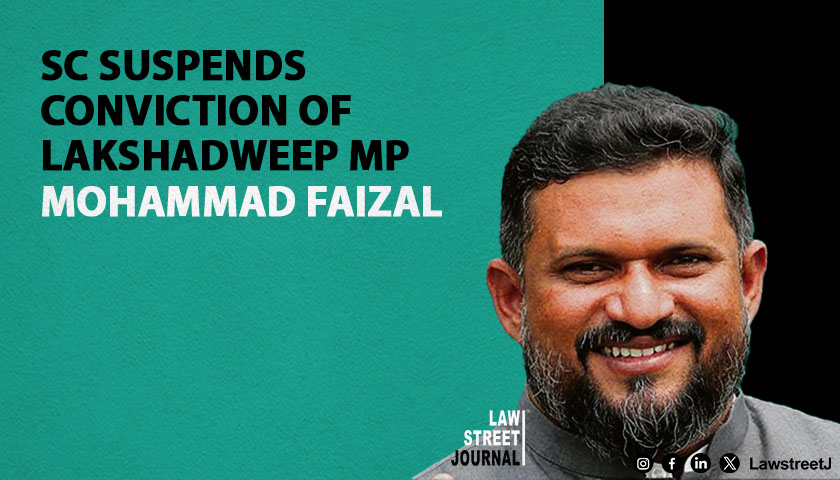NEW DELHI: The Supreme Court on Monday stayed Kerala High Court order which declined to suspend conviction of Lakshadweep MP Mohammed Faizal in an attempt to murder case.
A bench of Justices Hrishikesh Roy and Sanjay Karol said that the benefit of suspension of conviction earlier granted by the court will continue.
Faizal challenged the validity of the October 3 order of Kerala High Court refusing to suspend his conviction in a case of attempt to murder.
Additional Solicitor General K M Nataraj submitted that the notification has been issued by Parliament declaring the seat vacant.
The bench said in the meantime the operation of the impugned order of the high court is stayed.
Notably, the conviction in the case had led to his disqualification as Lok Sabha MP for a second time this year.
Faizal, in the petition, contended that the high court did not appreciate that due to his conviction and sentence for the offence his entire career will be ruined. The plea contended that the high court had failed to appreciate that the electorate of the Union Territory of Lakshadweep would also suffer grave prejudice and hardship if his conviction was not suspended.
Senior advocate Kapil Sibal for the petitioner HC declined the consider the fact the matter arose out of a fight between Congress and NCP and all witnesses were Congress workers.
The bench, however, asked the counsel as to what is the basis for seeking suspension.
Sibal said his term is expiring in May 2024, in less than a year. He said the incident related to attack and counter attack, and they (complainant's side) have been convicted. "They first came and attacked me and they have been convicted," he said.
The court issued notice on Faizal's plea and sought a response from the UT administration within four weeks.
Lakshadweep MP Mohammed Faizal PP was on October 4 disqualified from Lok Sabha after the Kerala High Court rejected its plea to suspend his conviction in an attempt to murder case.
On October 3, the Kerala High Court had said if persons with criminal antecedents are permitted to continue as Members of Parliament / Legislatures even after conviction that would only send wrong signals to public at large.
The HCs order came after the Supreme Court asked it to reconsider the NCP MPs application for suspending his conviction.
Following this, the Lok Sabha Secretariat issued the notification disqualifying him from January 11 when a Kerala court had convicted him.
Faizal was first disqualified from Lok Sabha on January 13 after a sessions court sentenced him and three others to 10-year rigorous imprisonment and a fine of Rs one lakh each for attempting to murder Mohammed Salih, son-in-law of the late Union Minister P M Sayeed, during the 2009 Lok Sabha elections.
However, he got a reprieve from the Kerala HC, which suspended his conviction on January 25, following which he approached the Secretariat for his reinstatement. A delay in action prompted him to approach the Supreme Court, prompting the Lok Sabha Secretariat to reinstate his membership on March 29 before the court heard the case.
Later, the SC, which was hearing the case appealing against suspension of his conviction, found fault with the HC order giving him relief but asked it to hear the issue again.
While considering the matter afresh after the Supreme Courts order of August 22, a single judge bench of Justice N Nagaresh had that the MP has been involved in three other criminal cases though he has yet not been convicted.
The incident of assault occurred on April 16, 2009 was in connection with General Elections and there are eyewitnesses to it, the HC had said.
The HC also said the victim was to be taken to a hospital in Mainland in a helicopter for treatment where he remained as in-patient for 14 days.
Criminalisation of election process is of grave concern in our democratic polity. The tentacles of political crimes and criminalisation of election process have started grappling free and fair elections. Incidents of criminal acts being committed even during meeting of legislative bodies are surfacing. Proliferation of crime in election process could garner momentum to cripple Indian democracy, if men with criminal background are allowed to continue to be part of the democratic system, the HC had said.
















